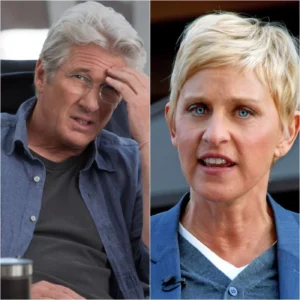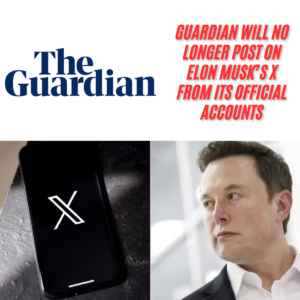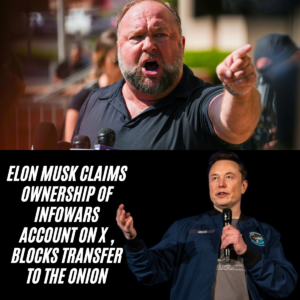Although hours still remained before the sun would dawn over the Congo River, none of the 60,000 fans packed inside the enormous stadium near its banks worried about lost sleep. Even at 4:30 a.m., an electric energy crackled through the sweltering air of Kinshasa, Zaire, as 32-year-old Muhammad Ali climbed through the ropes of a boxing ring erected in the middle of 20th of May Stadium.
Ali still claimed to be “the greatest of all time,” but seven years had passed since he last held the heavyweight championship. Hard-hitting George Foreman entered the ring with the words “World’s Champion” emblazoned on the back of his red robe, but Ali remained the people’s champion. A single punch of his right fist toward the moonlit skies summoned a mighty chorus chanting, “Ali, bomaye!” (“Ali, kill him!”).

More than a decade had passed since that February day in 1964 when Ali, then known as Cassius Clay, defeated Sonny Liston to capture the heavyweight belt. Three years later, his refusal to serve in the military because of his religious beliefs led the New York State Athletic Commission to ban him from fighting for three years and strip him of his title. Now, he had a chance to reclaim his glory, albeit at a strange time of day in an unfamiliar part of the world.
Ali was willing to make those tradeoffs in return for the millions guaranteed to him by a little-known boxing promoter with wild hair, Don King. The $5 million that the smooth-talking King promised to both Ali and Foreman surpassed the entire lifetime earnings of former champions Joe Louis and Rocky Marciano, but there was one problem: he didn’t have the money.
King soon found someone who did—Mobutu Sese Seko, the despotic president of Zaire (now the Democratic Republic of Congo) who had seized power in a 1965 coup. In return for staging the fight in Zaire to showcase his country to the world, Mobutu guaranteed the enormous purse.
“A fight between two blacks, in a black nation, organized by blacks and seen by the whole world; that is a victory for Mobutism,” declared signs erected by the leader of Zaire. Mobutu, however, was not happy with King’s original tagline for the title fight—”From the Slave Ship to the Championship”—so the promoter rebranded it the “Rumble in the Jungle.”
When Ali told reporters picking Foreman that “Mobutu’s people are going to put you in a pot, cook you and eat you,” the dictator was not amused and informed the American boxer that cannibalism wasn’t quite the image he wished to convey about modern-day Africa.
Once Ali landed in Zaire, however, he captivated the country with his charm and braggadocio as he mingled with the public. The surly Foreman, in contrast, remained secluded. He was miserable in Zaire—in part because of the absence of cheeseburgers according to his autobiography, By George—and it showed. Foreman’s mood further soured when he cut his eye while sparring, forcing a six-week delay in the scheduled September 25 fight date. Fearful that Foreman would never return, Mobutu refused to let him leave the country for treatment.
The loquacious Ali, meanwhile, continued to aim his relentless firehose of taunts at Foreman. He led bands of boys running next to him on training runs in chants of “Ali, bomaye!” “If you think the world was surprised when Nixon resigned,” he promised, “wait till I kick Foreman’s behind.”

However, few boxing experts, not even longtime booster Howard Cosell, believed he could. Foreman, a 3-1 betting favorite and seven years Ali’s junior, had not lost any of his 40 fights. He had annihilated Ken Norton and Joe Frazier, two fighters who had defeated Ali, in second-round knockouts. Ali’s backers feared the former champion risked his legacy—and even his life—getting in the ring with Foreman.
When the fighters entered the ring on October 30, 1974, Foreman possessed the heavyweight title, but Ali owned the hearts of the crowd. In order to beam the fight by satellite in prime time back to the United States, where fans crowded into 450 theaters to watch the fight on closed-circuit television, the fight began at 4:30 a.m. It was just one more annoyance for Foreman who “wanted to end the fight, collect my money and get home.”
Literary heavyweights such as Norman Mailer and George Plimpton covered the fight from ringside. Mobutu watched the bout from his palace on the only closed-circuit broadcast in Zaire, but a huge portrait of him gazed down from the rafters of the stadium, named for the day in which he had seized power in 1965.
Even in the pre-dawn hours, the temperature hovered around 80 degrees Fahrenheit as both fighters hit each other with big blows in the opening rounds. As the bout progressed, Ali began to retreat, put up his defenses and lean back on the loose ring ropes in order to absorb Foreman’s onslaught in a quest to tire out his opponent in the oppressive heat. Although the champion punched hard, he inflicted little damage on Ali, thanks to what became known as his “rope-a-dope” strategy.

After the fifth round, Ali winked to Frazier, who was sitting ringside. He knew the tiring Foreman was punching himself out. “Come on, George, show me something. Is that all you got?” Ali shouted at his exhausted opponent. Every jab thrown by the challenger elicited a roar from the crowd. Between rounds, Ali continued to urge the crowd to chant —”Ali, bomaye!”
At the end of the eighth round, Ali unleashed a counter-attack, a quick staccato of punches that stunned his spent foe. In the final seconds of the round, Ali delivered a hard left followed by a chopping right that sent Foreman twisting to the canvas. The referee counted Foreman out and declared Ali the champion by knockout. The stadium erupted in a frenzy as people stormed the ring.
Ali had become only the second heavyweight in history, behind Floyd Patterson, to regain his championship belt. (In 1994, a more affable Foreman would also reclaim the title while becoming the oldest heavyweight champion in boxing history at age 45.)
In his first interview after the fight, Ali pointed into the television camera and shouted to a worldwide audience, “I am still the greatest of all time.” No one could argue differently.



